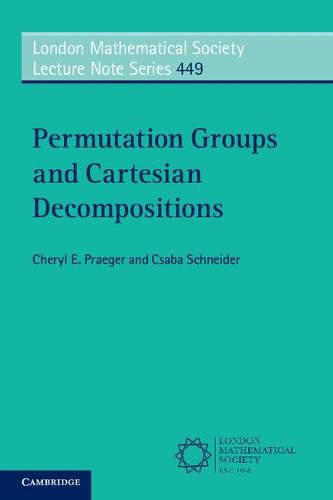Readings Newsletter
Become a Readings Member to make your shopping experience even easier.
Sign in or sign up for free!
You’re not far away from qualifying for FREE standard shipping within Australia
You’ve qualified for FREE standard shipping within Australia
The cart is loading…






Permutation groups, their fundamental theory and applications are discussed in this introductory book. It focuses on those groups that are most useful for studying symmetric structures such as graphs, codes and designs. Modern treatments of the O'Nan-Scott theory are presented not only for primitive permutation groups but also for the larger families of quasiprimitive and innately transitive groups, including several classes of infinite permutation groups. Their precision is sharpened by the introduction of a cartesian decomposition concept. This facilitates reduction arguments for primitive groups analogous to those, using orbits and partitions, that reduce problems about general permutation groups to primitive groups. The results are particularly powerful for finite groups, where the finite simple group classification is invoked. Applications are given in algebra and combinatorics to group actions that preserve cartesian product structures. Students and researchers with an interest in mathematical symmetry will find the book enjoyable and useful.
$9.00 standard shipping within Australia
FREE standard shipping within Australia for orders over $100.00
Express & International shipping calculated at checkout
Permutation groups, their fundamental theory and applications are discussed in this introductory book. It focuses on those groups that are most useful for studying symmetric structures such as graphs, codes and designs. Modern treatments of the O'Nan-Scott theory are presented not only for primitive permutation groups but also for the larger families of quasiprimitive and innately transitive groups, including several classes of infinite permutation groups. Their precision is sharpened by the introduction of a cartesian decomposition concept. This facilitates reduction arguments for primitive groups analogous to those, using orbits and partitions, that reduce problems about general permutation groups to primitive groups. The results are particularly powerful for finite groups, where the finite simple group classification is invoked. Applications are given in algebra and combinatorics to group actions that preserve cartesian product structures. Students and researchers with an interest in mathematical symmetry will find the book enjoyable and useful.